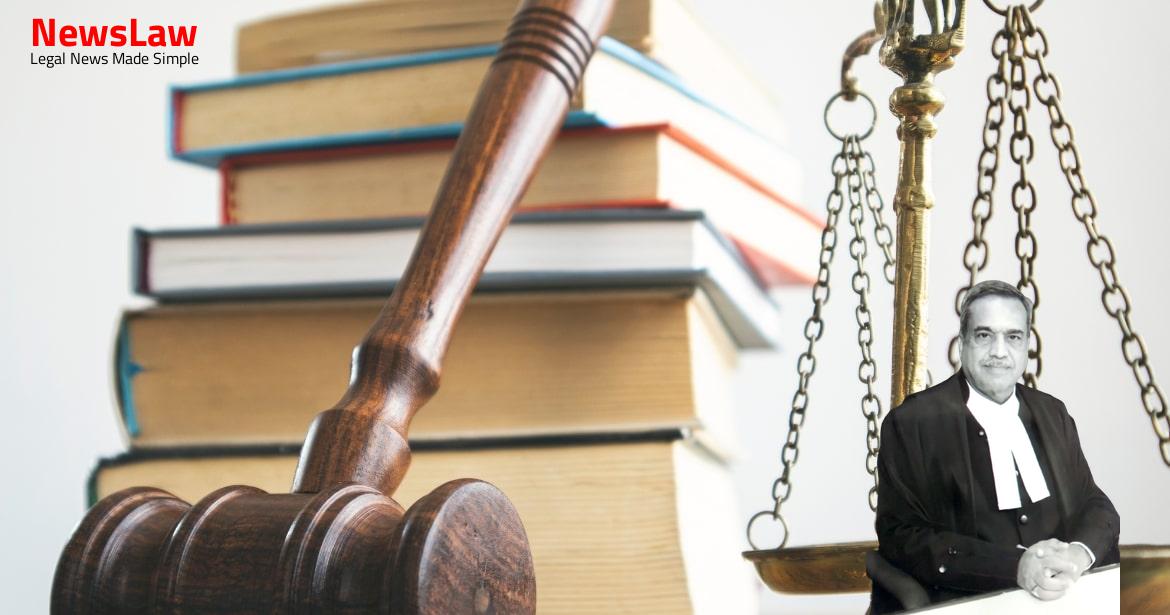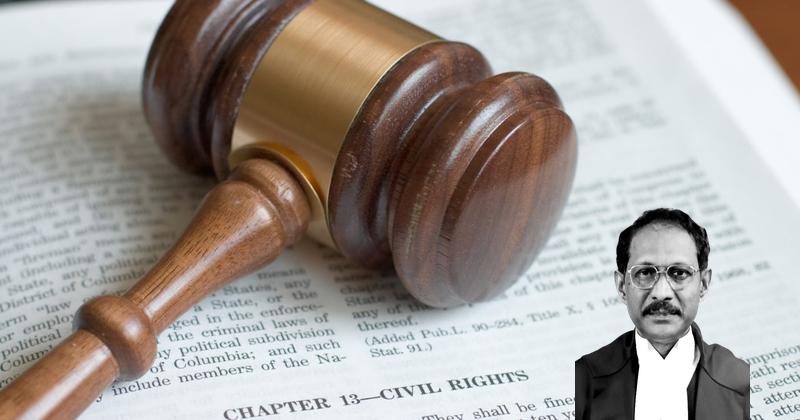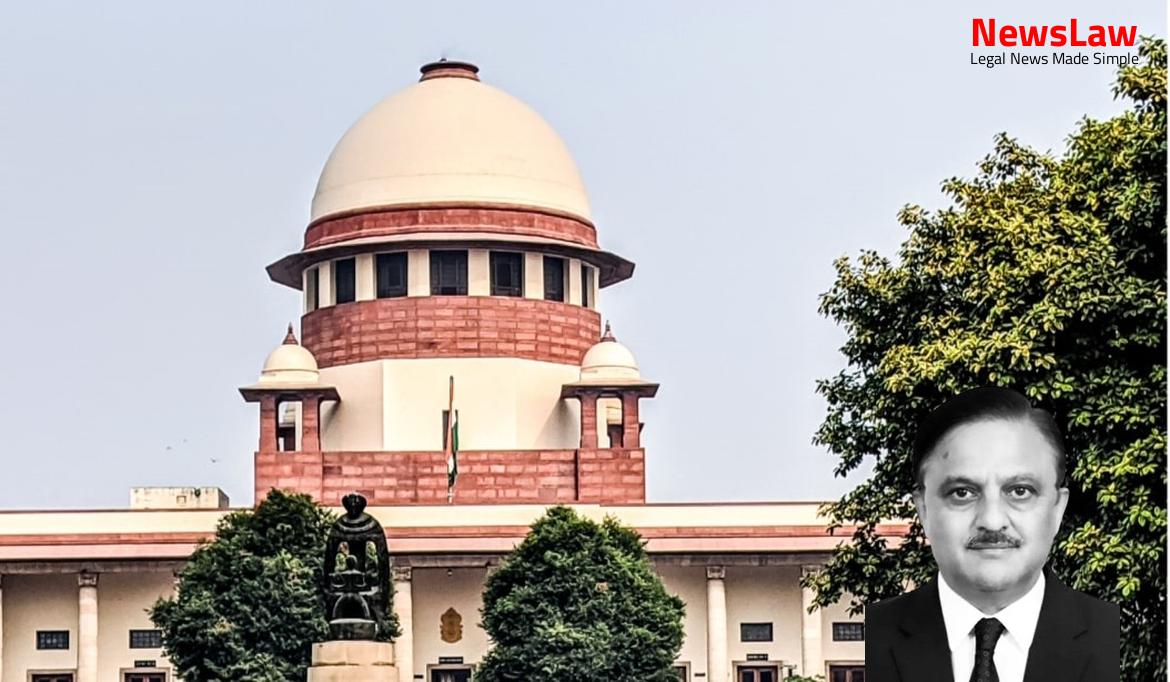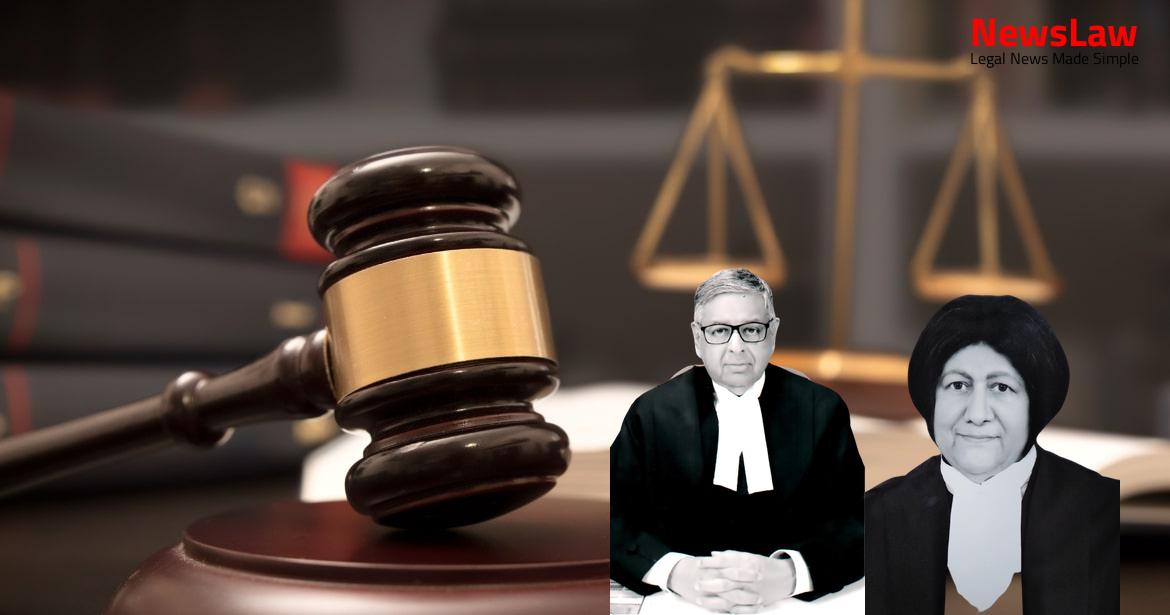Delve into the complexities of legal analysis within the criminal justice system with a specific focus on the process of charge framing and discharge applications. The court’s role in determining prima facie evidence without delving into the merits of the case is crucial for upholding justice. This insight sheds light on the importance of procedural fairness and the court’s duty to assess evidence impartially at various stages of a criminal case.
Facts
- The accused contended that no case is made out under Section 7 of the PC Act based on the transcript recording the conversation between the complainant and the accused.
- Leave has been granted in the case.
- The State has filed an appeal against the High Court’s decision to quash the charge framed against the accused under Section 7 of the PC Act.
- The High Court, in its revisional jurisdiction, discharged the accused of the alleged offence under Section 7 of the PC Act.
- Original complainant and another submitted a written report before Additional Superintendent of Police, Anti-Corruption Bureau, Bharatpur.
- Accused, who was a Patwari, demanded a bribe of Rs.2,800 for endorsing the report over an application.
- Charge framed against accused under Section 7 of the PC Act after considering material on record, including recorded conversation and other evidence.
- Prosecution and defence heard before framing the charge.
- Chargesheet filed against accused for offence under Section 7 of the PC Act.
- Accused filed revision application before High Court challenging order framing the charge.
Also Read: Electoral Malpractices in Mayor Election
Arguments
- The State has appealed against the High Court’s decision to discharge the accused and quash the charge under Section 7 of the PC Act.
- The State argued that there is sufficient evidence on record against the accused to proceed with the case.
- The State disagreed with the High Court’s evaluation of the evidence at the discharge application stage.
- The State emphasized that even the attempt to obtain a bribe is enough to establish the offence under Section 7 of the PC Act.
- The conversation transcript did not clearly show a demand for illegal gratification.
- The petitioner had refused to issue a residence certificate upon realizing the complainant’s true residence.
- The State relied on the Chitresh Kumar Chopra case to highlight the evaluation of material at the charge framing stage.
- The transcript indicated pending transactions between the parties related to a bank file, not necessarily a demand for a residence certificate.
- The appellant attempted to confuse the Court by mixing a conversation about dues with a bank payment.
- No acceptance or demand of a bribe was found on behalf of the complainant.
- The accused refused to accept any bribe, as per the evidence on record.
- Reference to the case of Dilawar Balu Kurane v. State of Maharashtra was made, highlighting the power of the Court under Section 227 Cr.P.C. to evaluate evidence and determine if a prima facie case exists against the accused.
- The High Court’s evaluation of the evidence in the present case was deemed justified to ascertain if there was sufficient material for the offense under Section 7 of the PC Act.
Also Read: Balancing Power and Transparency: Electoral Bonds Struck Down, Disclosure Mandated
Analysis
- At the stage of framing of the charge and/or considering the discharge application, the mini-trial is not permissible.
- The judge must determine whether a prima facie case is made out without considering the defense of the accused.
- The court should not delve into the pros and cons of the matter or weigh evidence during this stage.
- The High Court erred by examining the transcript in detail and assessing the likelihood of conviction at the discharge stage.
- The sufficiency of grounds should include evidence that points to suspicious circumstances against the accused.
- The High Court overstepped its jurisdiction by delving into the merits of the case and assessing the likelihood of conviction during the discharge process.
- The focus at the charge framing stage is on whether there is a ground for presuming the offence has been committed, not on establishing guilt beyond doubt.
- The judge’s role during Section 227 is to determine if there is sufficient grounds to proceed against the accused without assessing the likelihood of conviction.
- When considering an application for discharge, the court must assume that the prosecution’s material is true.
- Evaluation of the material is done to determine if the facts disclose the offense’s elements.
- Referring to State of T.N. v. N. Suresh Rajan, the court must evaluate material with this assumption.
- The case of P. Vijayan was considered in relation to Section 227 of the Cr.P.C.
- Impugned judgment and order by the High Court discharging the accused under Section 7 of the PC Act is unsustainable in law.
- Order passed by the Special Judge framing charge against the accused under Section 7 of the PC Act is hereby restored.
- Case to be tried against the accused by the competent court for the offence under Section 7 of the PC Act.
- High Court erred in virtually holding a mini trial at the stage of discharge application.
Also Read: Recall of Resolution Plan Approval: Legal Analysis
Decision
- Defence on merits should not be considered at the stage of framing of the charge and/or at the stage of discharge application.
- The merits of the case and/or the transcript will be considered at the time of trial.
Case Title: THE STATE OF RAJASTHAN Vs. ASHOK KUMAR KASHYAP (2021 INSC 252)
Case Number: Crl.A. No.-000407-000407 / 2021



